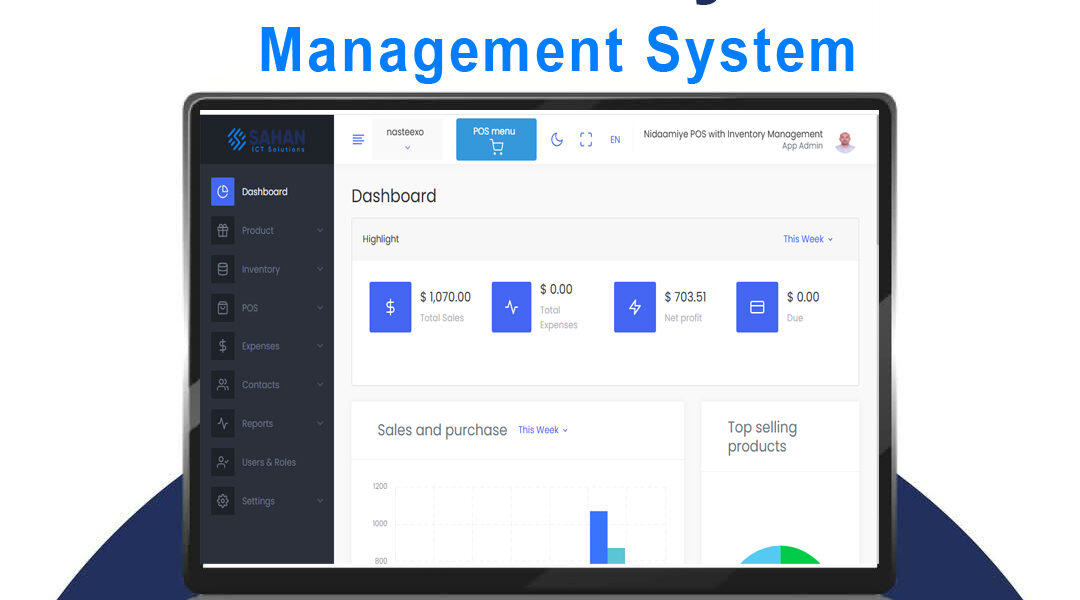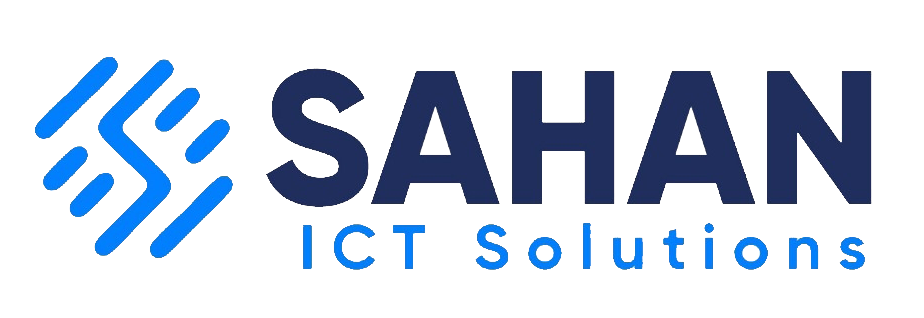
Nidaamiye Management System (POS) could offer and how such a system would benefit businesses, along with the key features typically found in a well-structured Point of Sale (POS) system. Here’s a more detailed breakdown:
1. Core Features of a POS System:
a. Sales Management:
- Real-time Transaction Recording: Every sale, whether it’s in-store or online, gets recorded instantly. It includes the items sold, quantity, price, discounts, and taxes.
- Customer Profiles: The system can store customer information (name, contact details, purchase history) for personalized service and loyalty programs.
- Multi-Payment Options: Modern POS systems support payments by cash, credit/debit cards, mobile payments (e.g., Apple Pay, Google Pay), and even cryptocurrency.
- Receipt Generation: After a transaction, customers can receive physical or digital receipts. This includes all details like itemized lists, taxes, and total amounts.
b. Inventory and Stock Management:
- Automatic Stock Updates: When an item is sold, the inventory is automatically updated, helping the business track stock levels in real-time.
- Low Stock Alerts: The system can notify managers when stock reaches a pre-set minimum level, prompting a reorder.
- Stock Transfer and Restocking: For businesses with multiple locations, a POS can track stock transfer and even manage stock across different branches or warehouses.
- Barcode Scanning: Using barcode scanners speeds up the sales process and minimizes human errors in inventory management.
c. Employee and Role Management:
- Employee Logins: Each employee can have a unique login, which helps track their sales performance, shifts, and actions within the system.
- Role-based Permissions: Access control ensures employees only see and can modify information pertinent to their role. For example, cashiers might not have access to financial reports, while managers do.
- Payroll Integration: Some POS systems can integrate with payroll software, calculating wages, commissions, or bonuses based on sales.
d. Financial and Accounting Features:
- Sales Reporting: Detailed reports that break down sales by day, week, month, or year, showing trends and helping with forecasting.
- Expense Tracking: Some POS systems also help track business expenses (e.g., utilities, salaries, suppliers), offering a complete view of the company’s financial health.
- Tax Calculation: Automatic tax calculation based on local tax rules ensures compliance.
- End-of-Day Reporting: A daily report that summarizes total sales, taxes, payments received, and stock levels.
e. Customer Relationship Management (CRM):
- Loyalty Programs: You can set up customer loyalty programs where points are earned for each purchase. These points can later be redeemed for discounts or other offers.
- Targeted Marketing: Some POS systems allow businesses to create marketing campaigns targeting specific customers based on their purchase behavior (e.g., sending discounts for repeat purchases).
- Email/SMS Integration: Automated notifications for promotions, order status, or upcoming events can be sent directly to customers.
f. Multi-Location and Multi-Channel Support:
- Cloud Integration: Many modern POS systems are cloud-based, allowing businesses to access data remotely from any location. This is especially helpful for businesses with multiple branches.
- E-commerce Integration: POS systems often integrate with online stores or marketplaces (like Shopify, WooCommerce, or Amazon), keeping stock levels consistent across both online and physical sales channels.
2. Additional Features and Benefits of the Nidaamiye Management System:
If the Nidaamiye Management System is a tailored solution for specific industries or regions, it could offer specialized features such as:
a. Localization:
- The system could be designed with local tax laws, currencies, and languages in mind. For example, it could calculate VAT according to local regulations or support multiple regional languages.
b. Customizable Interface:
- A customizable dashboard would allow managers to choose which metrics and reports they see first, streamlining decision-making.
c. Integration with Other Business Systems:
- ERP Integration: For large businesses, the POS could be integrated with an Enterprise Resource Planning (ERP) system for more complex financials, reporting, and business management.
- Accounting Software Integration: Direct links to accounting tools like QuickBooks, Xero, or Sage can help automate financial record-keeping.
d. Security Features:
- End-to-End Encryption: To protect sensitive customer data, the POS system can use encryption during transactions, ensuring that payment information is secure.
- Backup and Data Recovery: A solid backup system is essential to prevent data loss. Cloud-based systems often offer automatic backups and disaster recovery solutions.
- Audit Logs: To prevent fraud, the POS system can generate detailed logs of every action performed within the system. This provides transparency and accountability.
e. Mobile POS (mPOS):
- Many modern POS systems, including potential versions of the Nidaamiye system, are mobile-friendly. This means sales can be processed anywhere — for instance, in pop-up stores, at outdoor events, or while on the go.
- Portable Payment Terminals: The system can include or integrate with handheld devices (like tablets or smartphones) for processing payments on the spot, especially in large retail environments.
3. The Nidaamiye Advantage (Hypothetical):
If Nidaamiye is a custom-built or region-specific POS system, there could be unique advantages:
- Tailored to Specific Business Needs: Unlike generic POS systems, Nidaamiye might cater specifically to the needs of local markets, offering features like regional language support, or tax calculations specific to certain industries.
- Dedicated Support: A more localized solution might offer more responsive customer service and support, tailored to your country or region’s specific challenges.
- Affordability: Local or regional systems may come with pricing that’s more accessible to small or medium-sized businesses, as opposed to high-end global systems.
4. Benefits of Using a POS System Like Nidaamiye:
- Improved Efficiency: By automating sales, inventory, and financial tracking, businesses can reduce manual errors and save time.
- Better Decision-Making: With real-time reporting and data analysis, business owners can make more informed decisions about stock levels, staffing, and marketing.
- Enhanced Customer Experience: A smooth checkout process, combined with loyalty programs and personalized service, can boost customer satisfaction and retention.
- Scalability: A good POS system like Nidaamiye will grow with your business, whether you’re opening new locations, adding new products, or expanding to e-commerce.
